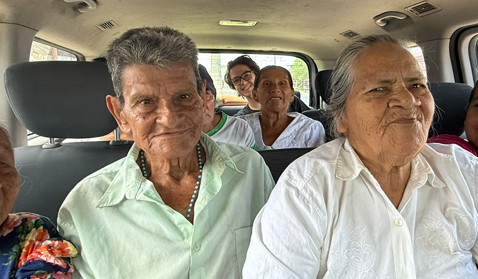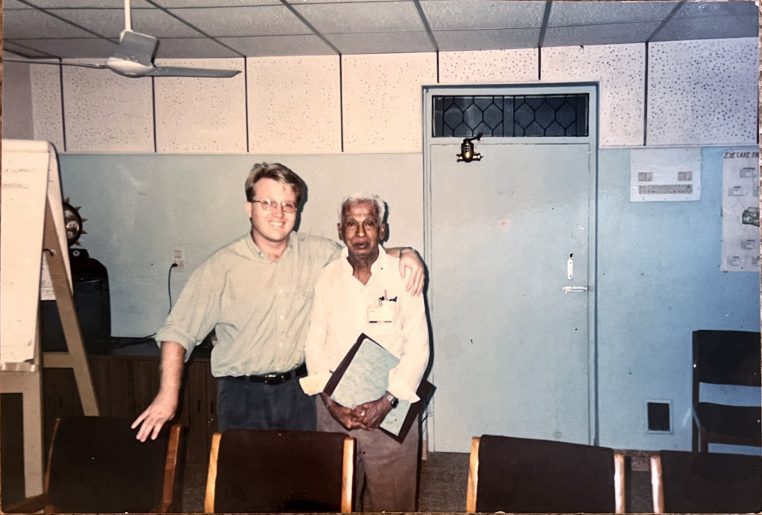Research published in the Lancet Global Health predicts that without increased funding and access to eye care services, the number of people worldwide who are blind will rise from 36 million to 115 million by 2050.
Lead author Rupert Bourne (Anglia Ruskin University, Cambridge, UK) says the findings “highlight the need to scale up vision impairment alleviation efforts at all levels.”
According to the study, the proportion of people with blindness and visual impairment is actually in decline (down from 39 million to 36 million). However, the global population is growing and people are living longer, meaning the number of people affected by blindness is set to substantially increase.
Patients after their sight-restoring cataract surgeries, funded by Seva donors
“Even mild visual impairment can significantly impact a person’s life and limit one’s educational and economic opportunities,” said Bourne
Key Findings from the Lancet Report include:
- 36 million people worldwide are blind
- 217 million people have moderate to severe visual impairment
- The prevalence of visual impairment has declined from 4.58% in 1990 to 3.38%
- 89% of visually impaired people live in low and middle-income countries
- Blindness affects 11.7 million people in South Asia, 6.2 million people in East Asia, 3.5 million people in South East Asia and more than 4% of the population in parts of sub-Saharan Africa
The regions of the world that are most affected by visual impairment are South and East Asia and sub-Saharan Africa – all regions where Seva Canada works.
Seva works around the world
Bourne and his colleagues believe global prevalence estimates for blindness and visual impairment are important motivators for the development of public health policies. Their research calls for increased investment in blindness prevention strategies such as cataract surgery and improved access to vision-correcting glasses.
“Interventions for vision impairment provide some of the largest returns on investment, and are some of the most easily implemented interventions in developing regions because they are cheap, require little infrastructure and countries recover their costs as people enter back into the workforce,” Bourne said.
Malagasy girl having eyes examined at a screening funded by Seva
Seva Canada donors have restored the sight of over 4 million people and continue to take action to end avoidable blindness and meet the growing needs of eye care worldwide. Strategies include focusing on eye care programs that are sustainable in financial and human resource terms, providing training at all levels of eye care, ensuring access to high-quality eye care for remote, rural populations and breaking down barriers for women and girls to get the eye care they need.
Sources:
www.bbc.com/news/health-40806253
www.thelancet.com/journals/langlo/article/PIIS2214-109X(17)30293-0/fulltext?elsca1=tlpr




